Photo essay for the Special Initiative “From Fear to Resilience: Visual Storytelling of COVID-19 in Southeast Asia” by SEA Junction and Partners.
| Title: | Women who Man the COVID-19 Vaccinations |
| Storyteller/Photographer: | Diana G. Mendoza |
| Place: | Quezon City, Philippines |
| Time: | December 2021 |
Nearly 15 hours daily, Mondays to Saturdays. That’s how Marguerite Maguzzo spends six of the seven days of the week attending to people who are scheduled to receive their vaccinations against COVID-19. She is required to be at the vaccination site from as early as 7 a.m. to as late as 8 p.m. when the encoders have finished their work for the day.
For a job that requires her to work beyond the regular eight-hour, five-day work week, Marguerite earns only P14,000 a month. She started from P5,000 a month to P8,000 in early 2000s up to 2008. She is separated from her boyfriend and has to take care of their 13-month-old baby. She is supported by her sister and stays in her place, so she does not worry about rent.
An August 2020 demographic study of the University of the Philippines Population Institute on health human resources during the coronavirus pandemic found that health profession is dominated by women (75%), and the young, as 65% are under the age of 35, most commonly referred to as the millennial generation. The average age of health professionals in the Philippines is 33 years for men and 35 years for women.
Over 36 million Filipinos are so far fully vaccinated against COVID-19, which is still too small for the government’s targeted 90% herd immunity. Pediatrician Dr. Lily Cruz said the medical community has been impatient about how the government is conducting vaccinations. “The ongoing inquiry on corruption in the purchase of medical supplies saddens us even more,” she said.
The Philippines is one of the poorest performers in the global indexes on the coronavirus pandemic response, and health workers and Filipinos continue to struggle with the health crisis.
Storyteller/Photographer
Diana G. Mendoza is an independent journalist and communications professional who loves to walk and daydream. (See full article in this link https://womenwritingwomen.com/2021/12/09/the-women-who-man-the-covid-19-vaccinations-covid-19-journals/)
Organizer
“From Fear to Resilience: Visual Storytelling of COVID-19 in Southeast Asia” is a special initiative of SEA Junction supported partly by the China Medical Board (CMB) Foundation to promote an alternative narrative of survival, resilience and solidarity. We are asking for short stories in the form of photo essays, short documentaries and illustrated art essays in any language of Southeast Asia (to be later translated into English) or in English. For more background and other stories click here.
SEA Junction
SEA Junction, established under the Thai non-profit organization Foundation for Southeast Asia Studies (ForSEA), aims to foster understanding and appreciation of Southeast Asia in all its socio-cultural dimensions- from arts and lifestyles to economy and development. Conveniently located at Room 408 of the Bangkok Arts and Culture Center or BACC (across MBK, BTS National Stadium), SEA Junction facilitates public access to knowledge resources and exchanges among students, practitioners and Southeast Asia lovers. For more information see www.seajunction.org, join the Facebook group: http://www.facebook.com/groups/1693058870976440/ and follow us on twitter and Instagram @seajunction
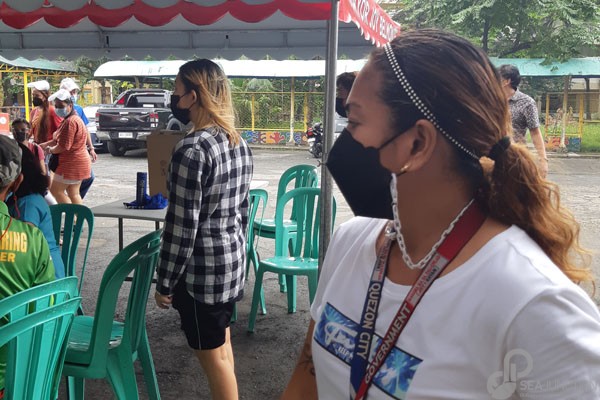
Marguerite Maguzzo takes charge in helping vaccinees fill up info sheets. (Photo by Diana G. Mendoza)
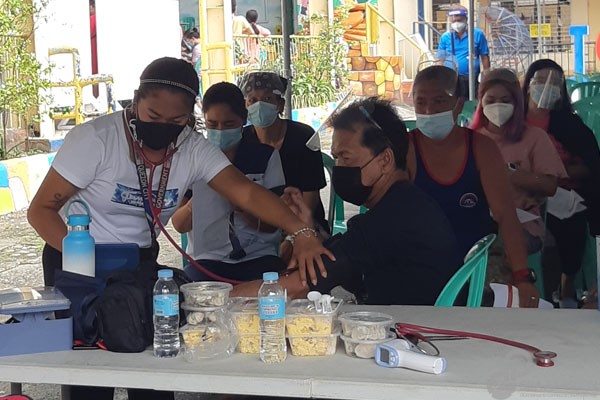
Marguerite takes a man’s temperature and BP. (Photo by Diana G. Mendoza)
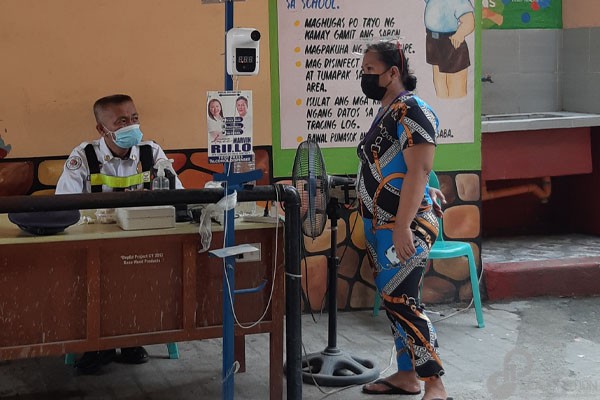
A woman arrives for her vaccination appointment. (Photo by Diana G. Mendoza)
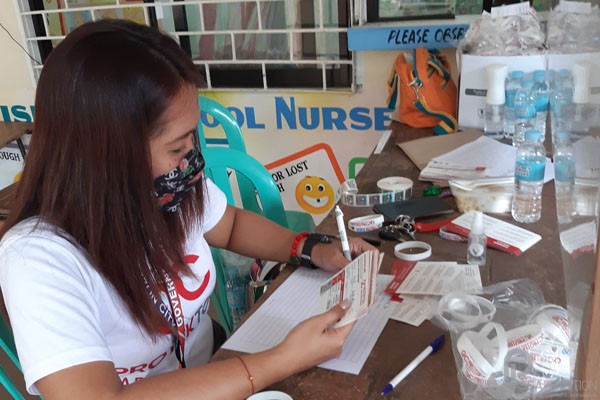
Djalin Sy prepares vaccination cards. (Photo by Diana G. Mendoza)
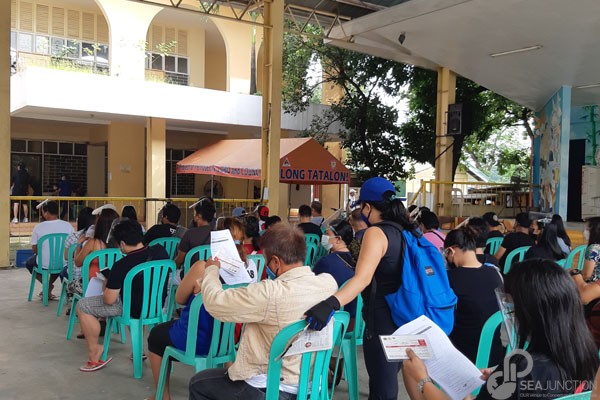
People fill up forms prior to vaccination. (Photo by Diana G. Mendoza)
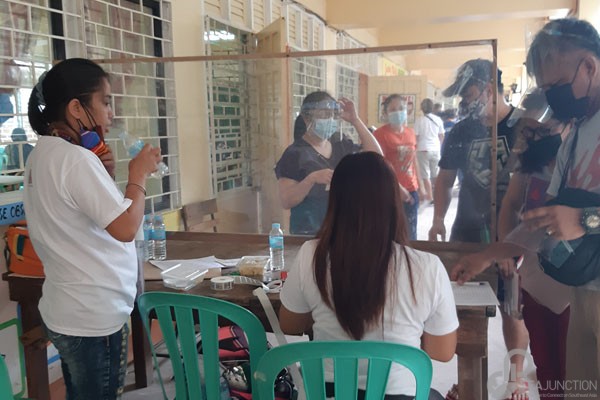
Vaccinees line up to receive their vaccination cards. (Photo by Diana G. Mendoza)
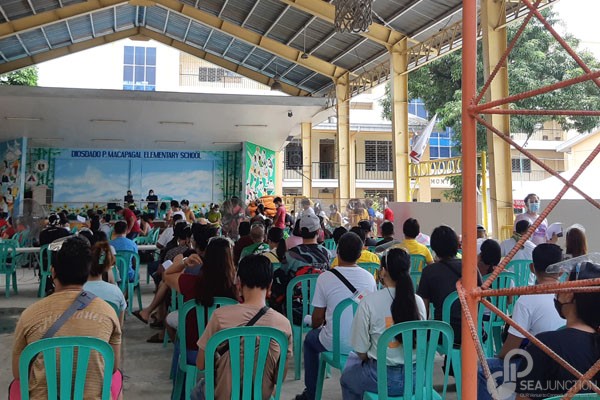
The organized vaccination lines. (Photo by Diana G. Mendoza)
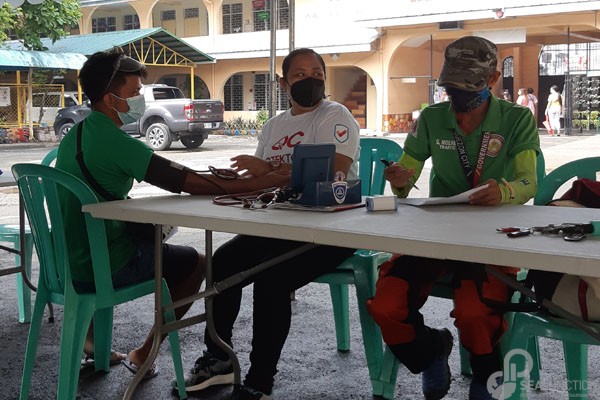
A nurse takes BPs prior to vaccination. (Photo by Diana G. Mendoza)
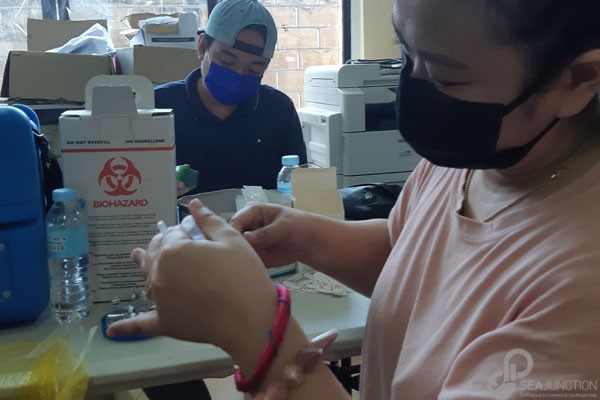
A nurse prepares to vaccinate a person. (Photo by Diana G. Mendoza)
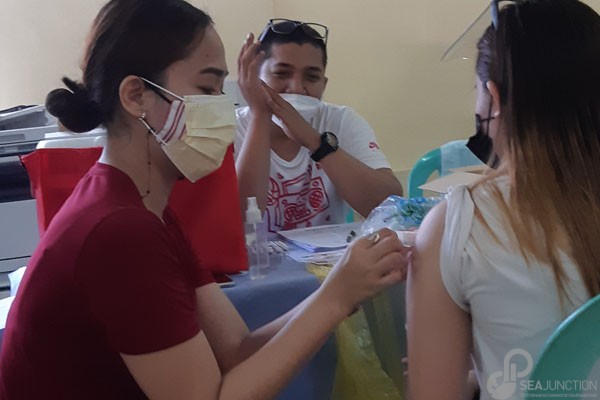
A nurse vaccinating a woman. (Photo by Diana G. Mendoza)
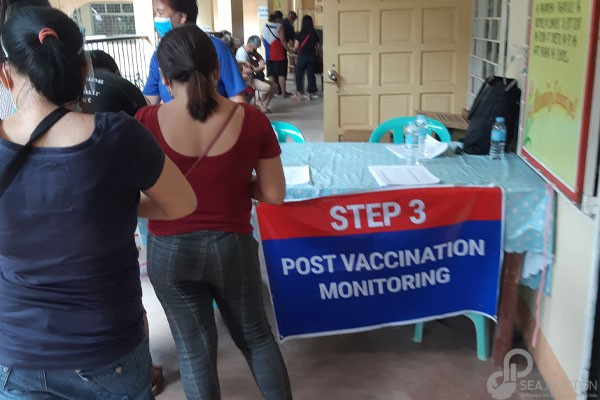
Vaccine recipients line up to enter the observation room. (Photo by Diana G. Mendoza)
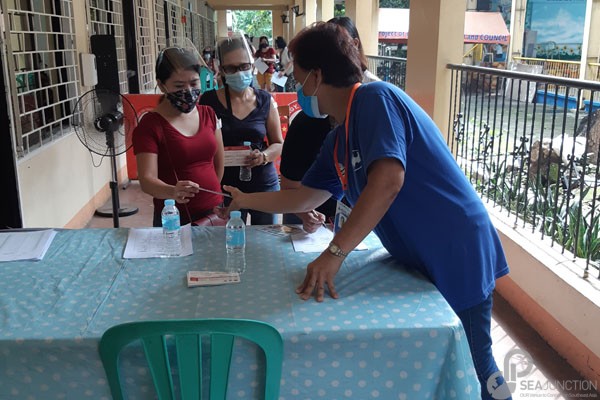
Vaccine recipients sign their names for record purposes. (Photo by Diana G. Mendoza)
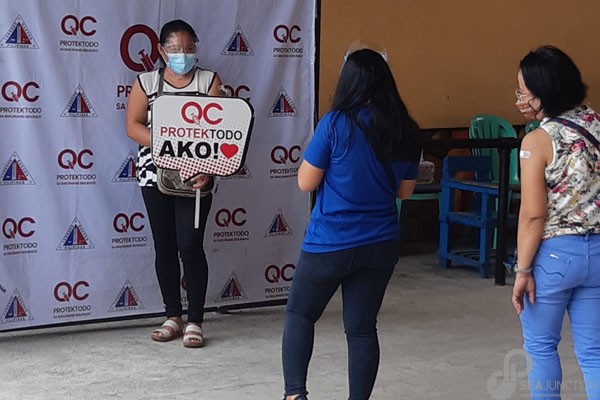
A fully vaccinated woman poses for a photo. (Photo by Diana G. Mendoza)
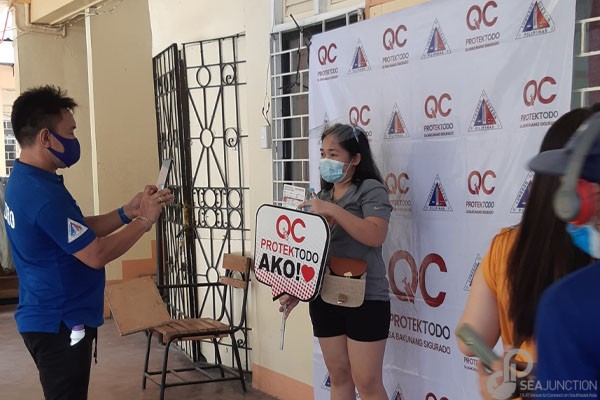
A woman poses for a photo after vaccination. (Photo by Diana G. Mendoza)
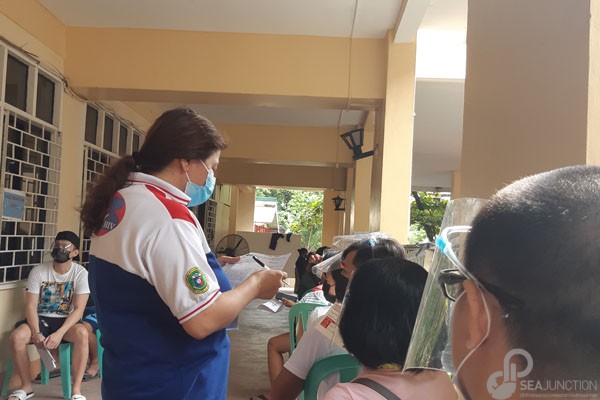
A female employee gives a final check outside the vaccination room. (Photo by Diana G. Mendoza)
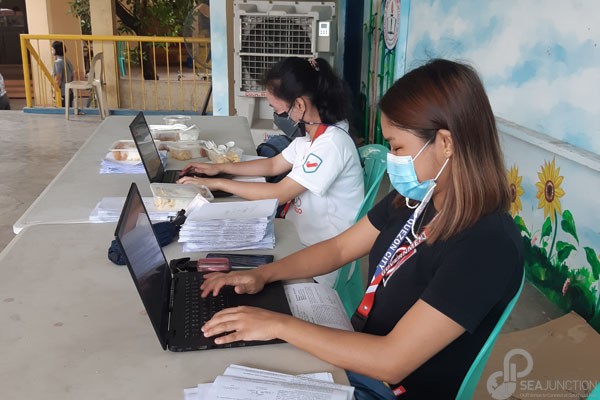
Encoders record the day’s vaccination tally. (Photo by Diana G. Mendoza)
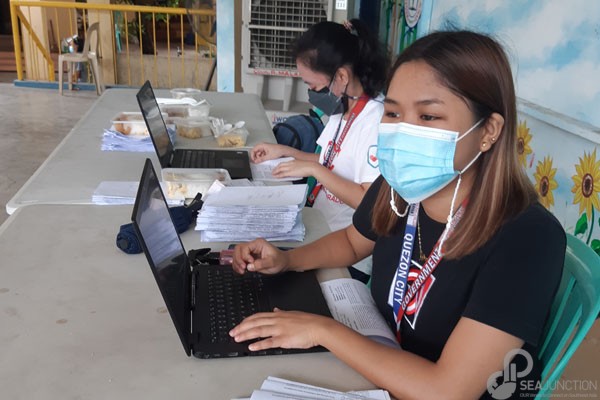
Noersa Perez encodes vaccine recipients’ information. (Photo by Diana G. Mendoza)


